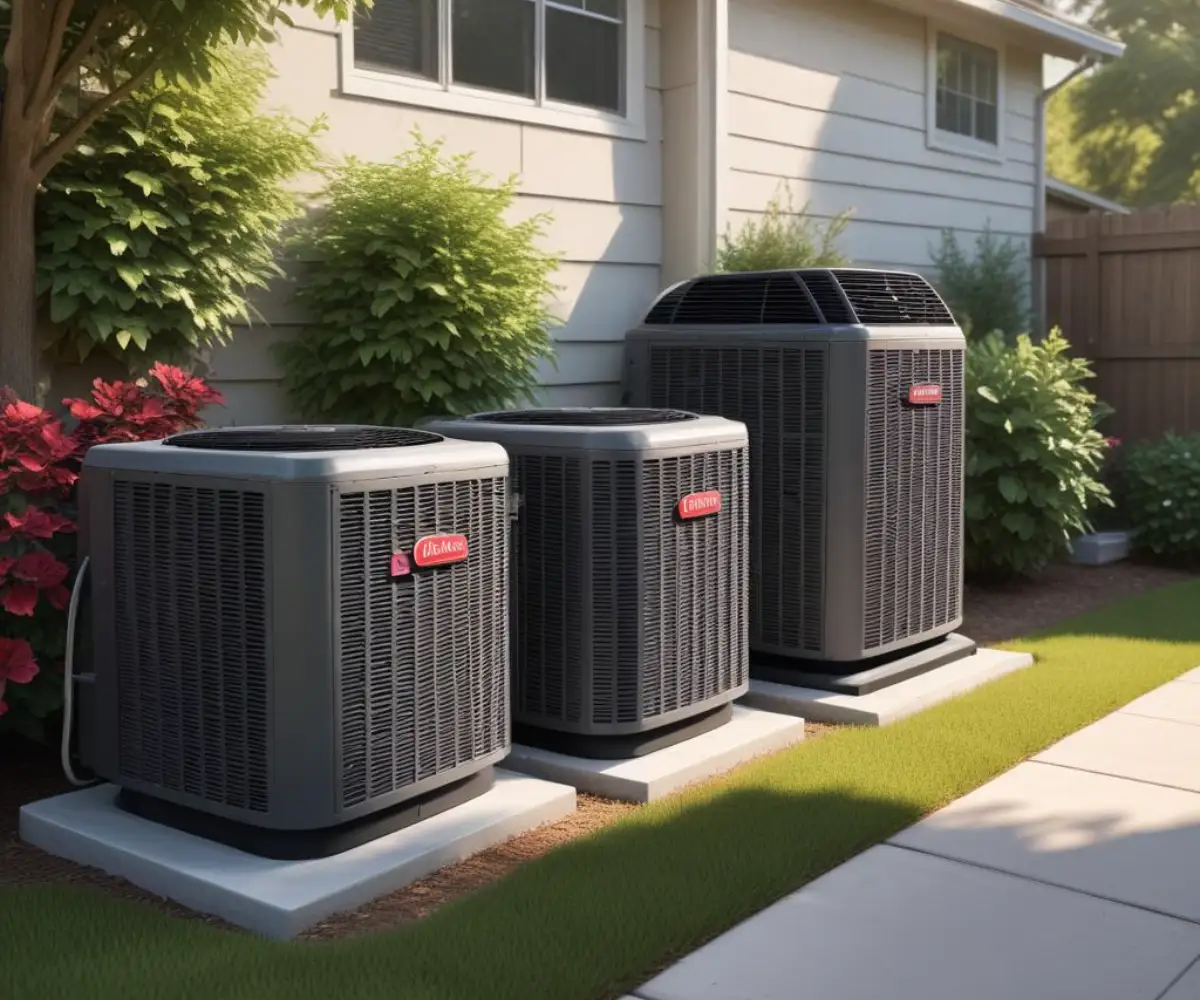Rheem vs Amana: The Ultimate HVAC Showdown for Your Home
Choosing a new HVAC system is one of the most significant investments you’ll make in your home. It’s a decision that impacts your daily comfort, monthly energy bills, and overall property value for the next 15 to 20 years. The sheer number of options can feel overwhelming, but the choice often comes down to a few trusted, legacy brands. Two of the most prominent names in the heating and cooling industry are Rheem and Amana.
For decades, both companies have built reputations for performance and reliability. Yet, they cater to homeowners with different priorities. This in-depth comparison will break down the essential differences between Rheem and Amana, helping you move past the brand names to understand the core technology, value, and long-term benefits each one offers for your specific needs.
You'll Learn About
Understanding the Brands: A Legacy of Home Comfort
Before diving into a feature-by-feature comparison, it’s helpful to understand the history and philosophy behind each brand. Their legacies inform their current product offerings and market reputation.
Rheem: A Century of Innovation
Founded in 1925, Rheem has a long-standing history of manufacturing a wide array of home comfort products, from water heaters to pool and spa heaters. This diverse product background gives them a holistic view of home energy use. In the HVAC space, Rheem is known for its focus on innovation, quieter performance, and smart home integration. They are a popular choice for homeowners who value a balance of affordability, advanced features, and a wide selection of models.
Amana: Durability and an Unbeatable Warranty
Amana’s roots trace back to 1934, where they began by building dependable beverage coolers. This foundation in refrigeration science evolved into a full line of durable home appliances and, eventually, HVAC systems. Today, Amana is most famous for two things: rock-solid durability and an industry-leading warranty. For many homeowners, the peace of mind offered by Amana’s lifetime unit replacement warranty is their most compelling feature.
Head-to-Head Comparison: Rheem vs Amana
Making the right choice requires a detailed look at how these two brands stack up across the most important categories: efficiency, performance, cost, and reliability.
Energy Efficiency (SEER Ratings)
The energy efficiency of an air conditioner is measured by its Seasonal Energy Efficiency Ratio, or SEER rating. A higher SEER rating means greater efficiency, which translates directly to lower electricity bills. Both Rheem and Amana offer a range of models to meet different efficiency needs and budgets.
Amana often promotes its high-efficiency models, with some reaching SEER ratings over 18. Rheem also offers a strong selection of high-efficiency units, with some of their top-tier models boasting excellent energy performance. For most homeowners, both brands provide efficient options that can significantly reduce energy use compared to older systems.
Performance and Technology
Modern HVAC systems are about more than just raw heating and cooling power. Advanced technology offers quieter operation, better humidity control, and smarter energy management. This is an area where Rheem’s focus on innovation becomes apparent.
Rheem’s premium models often feature variable-speed compressors and their proprietary EcoNet Smart Technology. A variable-speed compressor runs almost continuously at lower, energy-sipping speeds, providing more consistent temperatures and superior humidity control. The EcoNet thermostat allows you to control your heating, cooling, and even your Rheem water heater from a single app, offering a truly integrated smart home experience.
Amana also utilizes advanced components like two-stage compressors and variable-speed fan motors to enhance efficiency and comfort. Their systems are known for being robust and reliable performers. While perhaps not as focused on an integrated smart home ecosystem as Rheem, Amana delivers powerful, consistent heating and cooling.

Durability and Build Quality
An HVAC system is constantly exposed to the elements, so build quality is paramount. Both brands are known for constructing durable units. Amana, in particular, has built its brand reputation on longevity. Their units are often described as being “built like a tank.”
A key differentiator in durability can be the materials used for the coils inside the units. Rheem has a history of using aluminum coils, which are often more affordable. However, some technicians report issues with leaks in aluminum coils over time. This highlights the importance of professional installation and regular maintenance, no matter the brand.
Cost of Installation
For most homeowners, the final installed cost is a major deciding factor. Generally, Rheem systems tend to have a slightly more affordable upfront cost compared to Amana, especially for mid-range models. Amana’s premium models can be more expensive, but that cost is often justified by their superior warranty.
It is critical to remember that these are just equipment costs. The total price can vary significantly based on the complexity of the installation, your location, and the contractor you choose. Always get multiple quotes from reputable, licensed installers.
Warranties: The Ultimate Peace of Mind?
The warranty is where Amana truly separates itself from the competition. On their higher-end models, Amana offers a Lifetime Unit Replacement Limited Warranty for the compressor and heat exchanger. This means if the original, registered owner ever has a failure of one of these core components, Amana will provide a completely new unit. This is an almost unmatched level of protection in the HVAC industry.
Rheem offers a more standard, yet still solid, warranty. This typically includes a 10-year limited warranty on parts. While this is good coverage, it doesn’t match the extraordinary lifetime promise from Amana. It is crucial for homeowners to ensure their contractor registers the unit promptly after installation to receive the full warranty benefits from either brand.
The Deciding Factor: Which Brand is Right for Your Home?
After reviewing the key differences, the choice between Rheem and Amana becomes clearer. It hinges entirely on your personal priorities as a homeowner.
| Feature | Rheem | Amana |
|---|---|---|
| Primary Strength | Innovation, Quiet Performance & Smart Home Integration | Exceptional Warranty & Long-Term Durability |
| SEER Range | Good range of efficient models | Strong focus on high-efficiency units |
| Technology | EcoNet Smart Thermostat for integrated control | Robust, proven components for reliability |
| Typical Cost | Slightly more affordable upfront cost | Higher initial investment, especially for premium models |
| Core Warranty | Standard 10-Year Limited Parts Warranty | Lifetime Unit Replacement Limited Warranty on key models |
Choose Rheem If…
You should lean towards Rheem if you are looking for a great balance of upfront value, quiet operation, and modern features. If the idea of an integrated smart home system that controls both your climate and water heater is appealing, Rheem’s EcoNet is a major advantage. It’s an excellent choice for the tech-savvy homeowner who wants performance without a premium price tag.
Choose Amana If…
You should strongly consider Amana if your absolute top priority is long-term peace of mind. The lifetime unit replacement warranty is designed for homeowners who plan to stay in their house for many years and want to make a single, lasting investment in their comfort system. If you value proven durability over the latest smart features, Amana is likely the better fit.
Beyond the Brand: The Critical Role of a Quality Installation
No matter which brand you choose, the quality of the installation will have the biggest impact on your system’s performance, efficiency, and lifespan. A top-of-the-line unit from either Rheem or Amana will fail prematurely if it’s installed incorrectly. A professional contractor will perform a Manual J load calculation, a crucial step that determines the exact heating and cooling needs of your home based on its size, insulation, window layout, and local climate.
An improperly sized unit—whether too large or too small—will struggle to maintain comfortable temperatures, fail to control humidity, and ultimately break down sooner. This is why selecting a certified and experienced HVAC contractor is even more important than the brand you choose. An expert installation ensures your new system is not only running correctly but also protecting your home’s infrastructure, from preserving the integrity of your walls to preventing moisture issues. Thinking about upgrading your walls? You might find a dricore smartwall alternative that pairs well with a new, humidity-controlling HVAC system.
A quality installation also considers the small details that protect your property. This includes ensuring utility access points, like your water meter, are handled correctly. In some cases, you might need a special solution like a water meter box you can drive over to maintain access without compromising your landscaping or driveway. Even the finishing touches matter; understanding what are blank wall plates used for can ensure a clean and professional look after wiring or thermostat work is completed.
Frequently Asked Questions (FAQ)
Are Amana and Goodman the same company?
Yes, Amana is part of the same parent company as Goodman, which is Daikin Industries, a global leader in HVAC manufacturing. While they share manufacturing resources, Amana is positioned as the more premium brand with its superior warranty offerings.
How long should a Rheem or Amana air conditioner last?
With proper installation and regular annual maintenance, a central air conditioner from either Rheem or Amana should last between 15 and 20 years. Neglecting maintenance can significantly shorten this lifespan.
Which brand is quieter?
Generally, Rheem puts a stronger marketing emphasis on quiet operation, and their variable-speed models are designed to be exceptionally quiet. However, Amana’s high-end units also incorporate sound-dampening features. The specific model you choose will have a greater impact on noise levels than the brand itself.
Do I have to register my warranty?
Absolutely. To receive the full advertised warranty from either manufacturer—especially Amana’s lifetime warranty—the unit must be registered online within a specific timeframe after installation, typically 60 days. A professional contractor should handle this for you, but it’s always wise to confirm it has been done.
The Final Verdict
The “Rheem vs Amana” debate doesn’t have a single winner that applies to every home. The victor is the brand that best aligns with your priorities. Rheem offers a compelling package of modern technology, efficiency, and value. Amana delivers unmatched long-term security through its incredible warranty and reputation for durability.
Your ultimate task is to define what matters most to you—upfront cost, smart features, or lifetime protection. Once you have your answer, pair your chosen brand with a highly-rated, certified local installer. This combination is the true formula for achieving reliable, efficient home comfort for years to come.

